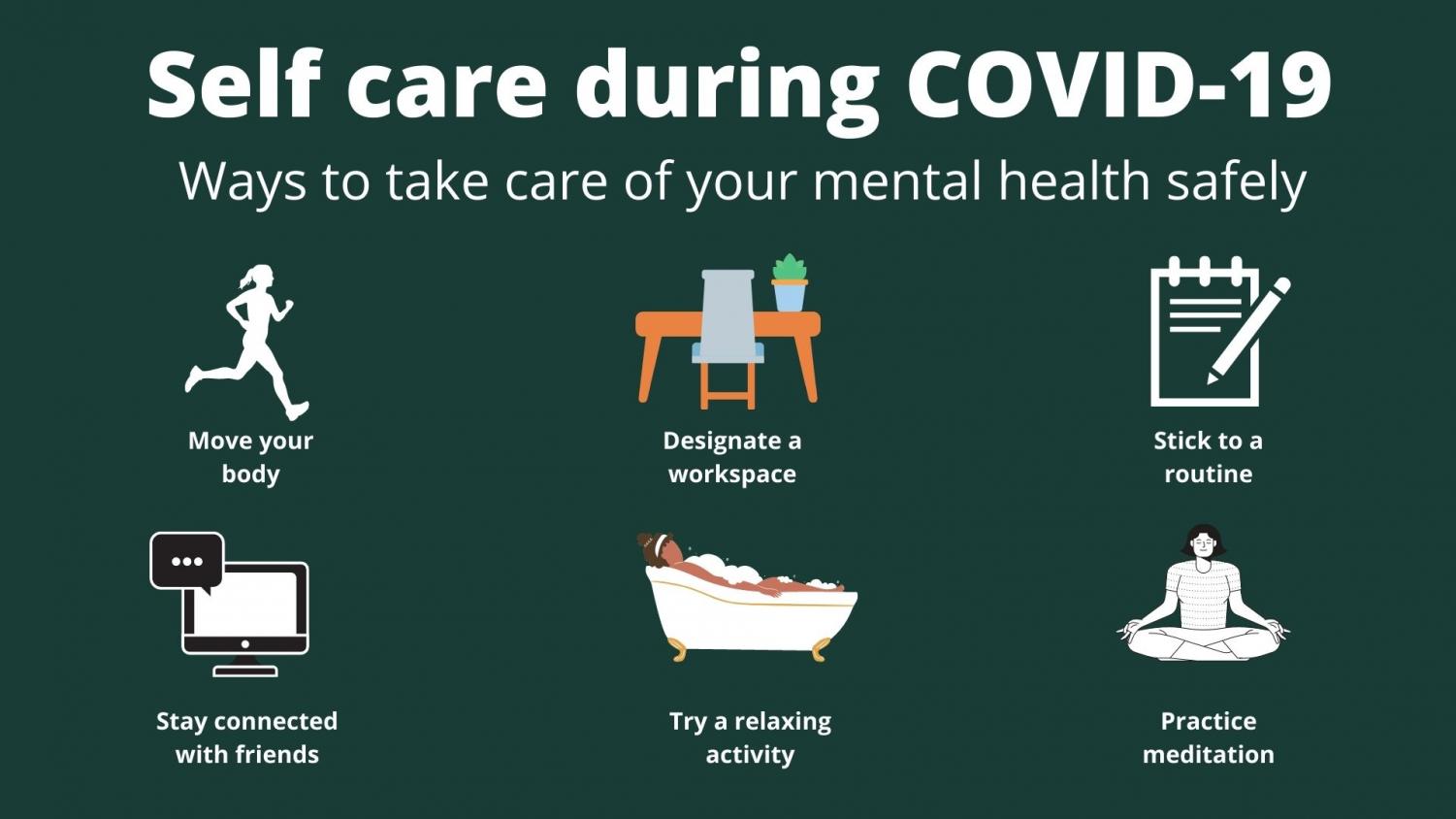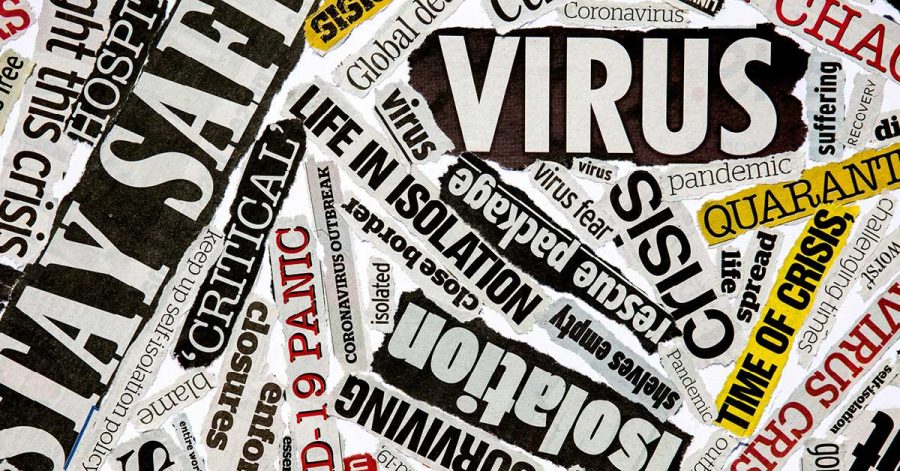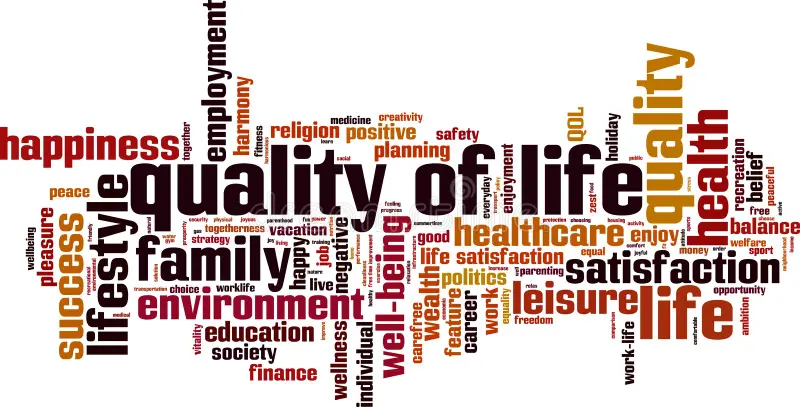Two pandemics could result from COVID-19
Isolation and uncertainty surrounding pandemic causes rise in mental health issues
Not only is the possibility of catching COVID-19 impacting mental health, but the social and economic implications are also taking a toll on people’s mental states. Quarantining, isolation from friends and family, fear of losing loved ones and the inundation of news about the virus can all cause mental health issues to be exacerbated or surface during the crisis.
November 10, 2020
While COVID-19 is a pandemic in terms of disease, it also has led to a different kind of pandemic: one that involves mental health. The virus is at the forefront of much of the national and global conversation, and while society has been hyper-focused on the physical implications of the pandemic, the mental implications can be overlooked, especially among college students.
According to Carrie Fuhrer, the quarantine and isolation that can come as a result of COVID-19 have vast impacts on mental health.
“Quarantine and social isolation can decrease the interactions between an individual and their chosen supports,” said Fuhrer, a licensed professional counselor. “Quarantine also forces these interactions to occur virtually, which decreases the opportunity for face-to-face communication.”
According to John Ranney, Ph.D., a professor in the psychology department at Gannon University, the lack of interaction with other people that occurs during quarantine can lead to increased depressive feelings.
“When people feel like they can’t reach out or engage and talk with other people, that’s where we see the most mental health issues,” Ranney said. “The more isolated people are, the worse their mental health tends to get.”
Ranney also said that quarantine can be difficult for individuals because there are few time markers to differentiate the days, so every day can tend to feel the same. This can lead to people getting mentally worn down.
Active Minds, a national organization that focuses on empowering students to speak out about mental health and providing information, reported in a survey conducted in April 2020 that among 2,086 college students surveyed, 80% reported that COVID-19 has negatively impacted their mental health. The same percentage of students also reported that loneliness and isolation were the most common ways they have been impacted by the pandemic.
Alyson Eagle, a licensed professional counselor at Gannon, said that isolation is not a normal experience for humans. She also brought into consideration the fact that quarantine and isolation can cause a phenomenon called “FOMO,” or the fear of missing out. When one is in quarantine but active on social media, they are constantly seeing what their friends who are not isolated are doing, and this can exacerbate loneliness.
Eagle also said that Gannon recognizes that isolation is difficult, and is taking many steps to try and be there for students in quarantine such as delivering meals or sending students care packages.
Fuhrer also said that quarantine can also lead to a lack of physical touch, which can affect mental health.
“Physical touch releases endorphins in the brain that improve mood and decrease mental health symptoms,” Fuhrer said. “Social isolation is now requiring individuals to find other ways to release the same endorphins.”
Eagle agrees with this sentiment.
“We’re human beings, naturally we want that connection,” Eagle said. “We’re taught as young children that when we’re hurting, we should hug someone we love.”
Eagle also advises that even during this pandemic, individuals can still find solace in physical touch, but it must be done with caution.
“If you need a hug, ask someone if they’re comfortable with it,” Eagle said. “Sometimes you have to take calculated risks to survive.”
Stacy Malesiewski, an author and certified health coach and nutritionist, takes a holistic approach in addressing mental health. She said there is a connection between mind, body and soul.
“We need to look not just at the mind but at the entire body, and how different aspects of it affect the mind,” Malesiewski said.
One thing that Malesiewski said impacts mental health, especially during quarantine and isolation, is the lack of vitamin D that comes from decreased exposure to the outdoors and sunlight.
“There are numerous studies that show the correlation between mental health and vitamin D synthesis, that we mainly get through the sun,” Malesiewski said. “When we are cooped up in the house and not getting that sun exposure, we’re not getting the vitamin D we need.”
Increased fear and anxiety are also present amid the COVID-19 pandemic. Fuhrer said that these emotions also impact mental health.
“Fear and anxiety increase when we are surrounded by unknowns and changes to our routine, and unfortunately the pandemic is full of unknowns and changes,” Fuhrer said. “This anxiety makes it difficult for some individuals to feel secure in their decision-making and confidence. A loss in confidence and self-worth can also increase mental health concerns.”
Eagle agrees that COVID-19 increases these mental difficulties, especially so many things that are unknown, and there is the risk of transmission and heightened social responsibility.

“Stress and anxiety love situations where we aren’t certain of things, and COVID has produced a lot of uncertainties,” Eagle said.
Malesiewski also said that one of the most prominent stressors during COVID times is the fact that so much is unknown. Even the term “New Normal,” which is thrown around often in daily conversation now, can be a stressor. The term itself implies the existence of unknowns, which many people can find difficult to cope with.
The survey done by Active Minds corroborates this sentiment, with 91% of students reporting COVID-19 resulted in increased stress and anxiety.
Eagle also said that at the Gannon Counseling Center, the number of students seeking services has doubled this semester.
Ranney also emphasized the negative impacts of stress.
“The longer you are in a state of fear or anxiety the more likely it is you will shut down,” Ranney said.
The JED Foundation, a nonprofit organization that advocates for mental health and suicide prevention, said that many will experience trauma as a result of the COVID-19 pandemic. The organization also noted that it is important for universities to incorporate safe spaces on campus for students to deal with, process and heal from trauma, especially that which is related to COVID-19.
According to Fuhrer, the influx and bombardment of news and media does not help anxiety.
“Individuals seek out direction and information from those in power when they feel an increase in stress or uncertainty,” Fuhrer said. “The impact of conflicting or confusing information presented by the media and government fficials can lead to an increase in anxiety or frustration.”
Ranney hypothesized that anxiety disorders will increase with the influx of information.
Eagle warns of the dangers of spending too much time consuming COVID-19 related content and the toll it can take on mental health.
“Although we want you to stay updated, we want you to be mindful of how much time you spend watching the news,” Eagle said. “Anxiety loves to sit in these spaces of fear.”
Fuhrer also said that there are massive social effects of the pandemic as well.
“I believe that social distancing protocols will impact our long-term willingness to socialize with others, especially individuals who are not in our immediate social circle,” Fuhrer said. “I also believe it will take some time to recognize the generational impact for children who are separated from their social groups while they home school in isolation.”
Malesiewski said that the lack of social interaction and community that results from social distancing and isolation protocols can also take a toll on mental health.
“We need support and friendships and the ‘new normal’ is not allowing us to take advantage of those,” Malesiewski said. “It’s one thing to go through something stressful in itself, but it’s a whole other ballgame to go through something that stressful without a support system.”
So what can be done about this raging mental health pandemic? According to the JED Foundation, universities and institutions have a role to play.
It is imperative that they employ a public health approach that is both active and engaging when addressing mental health. Task forces and initiatives created within these institutions to deal with the pandemic should include some aspect of mental health in COVID-19 related rhetoric.
The JED Foundation also said that universities should be accountable for teaching students healthy coping mechanisms and proper ways of dealing with mental health struggles that may result from such chaotic times.
Getting adequate sleep is a major way individuals can take better care of their mental health. Malesiewski said that college-aged students should be getting at least seven or eight hours of sleep each night.
“Especially for college kids, sleep is something we can tend to get less of, but in reality it is what we need the most during stressful times,” Malesiewski said.
Malesiewski also explained how lack of sleep can cause a vicious cycle. When individuals do not get enough sleep, it causes an increase in cortisol, which can cause more anxiety.
This makes it harder to fall asleep the next day not only because of the anxiety itself, but because excess cortisol prohibits the production of melatonin in the body, which is necessary for sleep.
Eagle said that self-care is key in maintaining mental health. Activities such as exercise, drawing, conversing with friends or whatever brings an individual joy are essential to bring a sense of mental peace amid COVID-19 stressors.
Malesiewski also emphasized the importance of engaging in self care activities.
“Take time for mindfulness, prayer, meditation or some type of reflection,” Malesiewski said. “This helps recenter people and helps them to be more grounded.”
According to Ranney, while social media can be harmful in some instances, it can also be beneficial as a way to stay connected. Actively engaging with others on social media rather than mindlessly scrolling can help individuals feel less lonely.
It can also be beneficial to engage in activities with an end goal to facilitate a feeling of purpose. These are better for overall mental health and help combat feelings of despair.
“The more you can look to solve problems rather than focusing on the emotions surrounding those problems, the better,” Ranney said.
Ranney also stressed the importance of looking at COVID-19 precautions as social responsibilities and acts of compassion.
“Make the reason you are taking all of these precautions something that you are doing to care for others rather than something that’s hoisted upon you,” Ranney said.
“Encourage a sense of community and responsibility for other people.”
According to Malesiewski, one of the biggest ways to begin addressing mental health during COVID-19 is to simply acknowledge the fact that these are strange times.
“Pretending like this is normal downplays the feelings people are having and it’s not allowing them to navigate through them, so the feelings build,” Malesiewski said. “It’s important to recognize that this stinks.”
Above all, it is important to bring awareness to mental health, especially during COVID-19 times.
“Individuals should not be made to feel guilt or shame for having feelings of anxiety or depression, especially in light of the stress surrounding our day-to-day life in the face of the pandemic,” Fuhrer said.
Malesiewski agreed with this sentiment.
“The biggest thing is to be able to freely talk about the fact that this is not normal,” Malesiewski said. “People need a safe place to be able to admit they are struggling.”
The continued conversation surrounding mental health during COVID-19 times also fosters a sense of community, according to Eagle.
“I think people are starting to realize that these are unprecedented times and we are all struggling together,” Eagle said. “Bridging connections and making sure you have a good support system are vital in a time like this.”
Eagle also said that this sense of community is especially prevalent here at Gannon.
“I think the stigma of mental health has really shifted on our campus,” Eagle said. “Our students are talking, and they’re talking in a way that shows it’s OK to get help.”
We must be diligent in bringing awareness to mental health and caring for those around us. If we do not, mental health disorders will become more prevalent than COVID-19 cases.
“All of the research is showing that mental health is going to be the next pandemic,” Eagle said. “Everyone is being impacted by COVID-19 and the implications of it.
“You guys really need to recover from this.”
ANNA MALESIEWSKI







